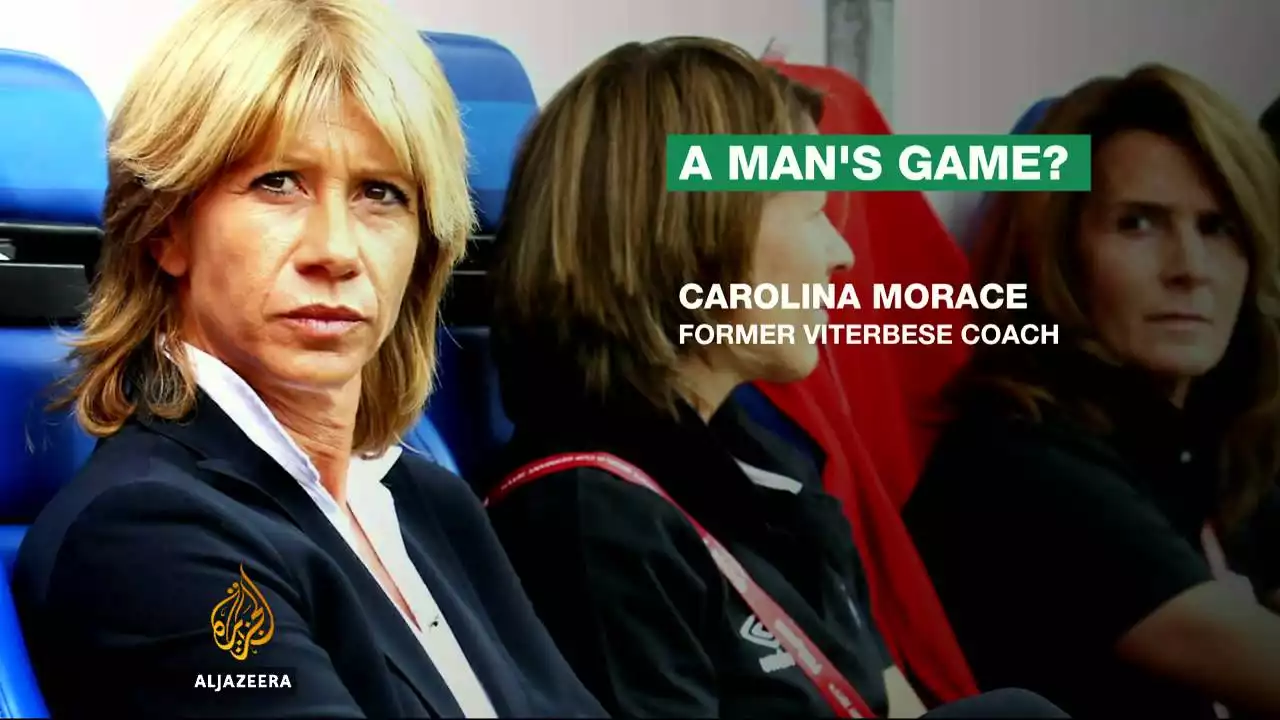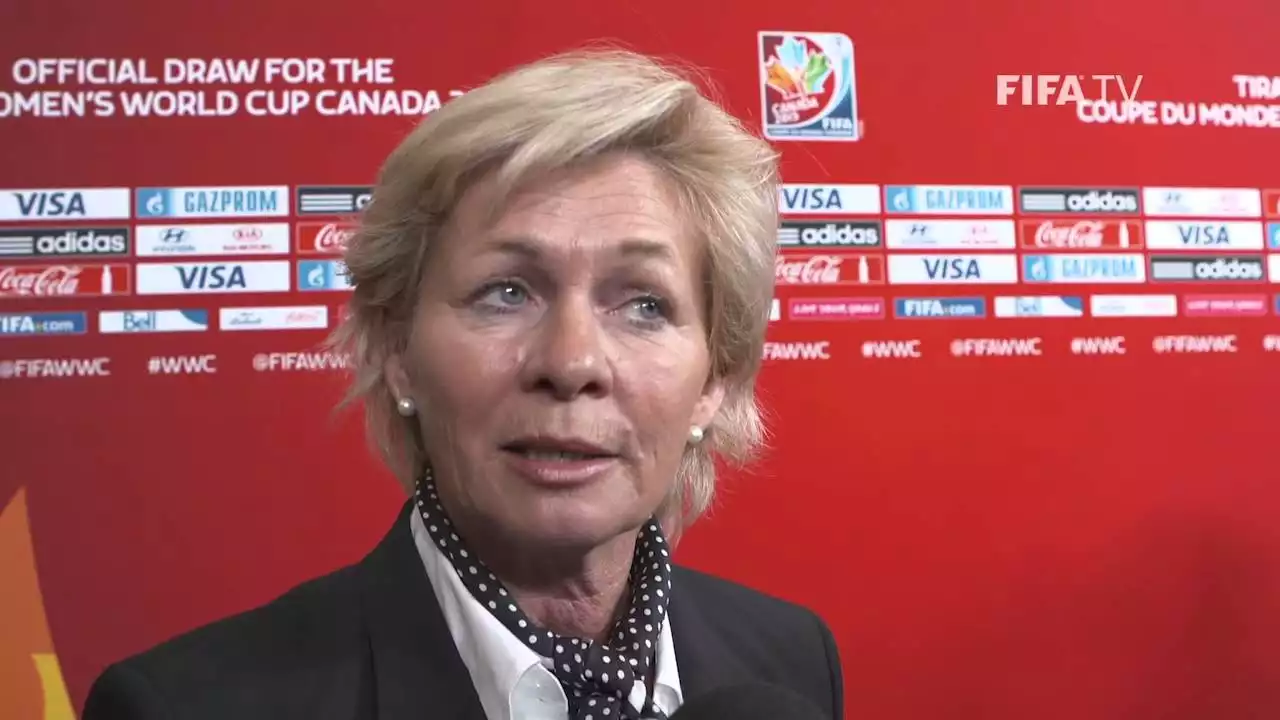Historical Perspective: Female Managers in European Football
Female managers have long been underrepresented in European football. While the sport has seen remarkable progress in recent decades, with more opportunities for women to participate and excel, coaching positions have remained largely inaccessible to them. However, a few pioneering individuals have paved the way for future generations of female managers.
One such trailblazer is Helena Costa, who made history in 2014 when she became the first woman to be appointed as a manager of a men's professional team in the top two tiers of any European league. Costa's appointment as the manager of Clermont Foot, a French second division club, was met with both excitement and skepticism. Her tenure, though short-lived, opened doors for other aspiring female coaches.
Challenges Faced by Female Managers in European Championships
Despite their undeniable talent and passion for the game, female managers face numerous challenges in the European Championships. The deeply entrenched gender stereotypes and biases present in the football industry often hinder their progress. Female managers must constantly prove themselves and overcome preconceived notions about their abilities.
One significant challenge female managers face is the lack of representation. With a scarcity of female role models in coaching positions, aspiring coaches may struggle to envision themselves in such roles. Limited access to mentorship and networking opportunities further exacerbates the issue. Additionally, the absence of formal pathways for women to progress in coaching makes it challenging for them to gain the necessary experience and recognition.
Success Stories of Female Managers in European Championships
Despite the obstacles they face, female managers in the European Championships have achieved remarkable success. Emma Hayes, the manager of Chelsea Women's Football Club, is a prime example. Under her leadership, Chelsea has emerged as a dominant force in women's football, winning multiple league titles and reaching the finals of the UEFA Women's Champions League.
Another success story is that of Sarina Wiegman, the former manager of the Netherlands women's national team. Wiegman guided the Dutch team to victory in the 2017 UEFA Women's Euro and the 2019 FIFA Women's World Cup, cementing her reputation as one of the best managers in the game. These achievements not only solidify the capabilities of female managers but also inspire future generations of women aspiring to lead at the highest level.
Impact of Female Managers on the Game
The increasing presence of female managers in the European Championships has had a profound impact on the game. Their unique perspectives, strategic acumen, and ability to foster team dynamics have brought a fresh approach to coaching. Female managers often emphasize a collaborative and inclusive style of leadership, which resonates with players and creates a positive team culture.
Furthermore, female managers' success challenges the notion that coaching is a gender-specific role. By breaking down these barriers, they inspire young girls and boys alike to pursue their dreams, regardless of societal expectations. The visibility and recognition of female managers also encourage more girls to participate in football, fostering the growth of women's football at all levels.
Strategies for Empowering Female Managers in European Championships
To empower female managers in the European Championships, several strategies can be implemented. Firstly, football governing bodies and clubs should prioritize creating equal opportunities for women in coaching positions. This includes implementing initiatives that promote diversity and inclusion, such as quotas or targets for female representation in coaching roles.
Mentorship programs can also play a crucial role in empowering female managers. Establishing mentorship networks that connect experienced coaches with aspiring female managers can provide guidance, support, and valuable insights into navigating the industry. Additionally, providing access to professional development opportunities, such as coaching courses and workshops, can help female managers enhance their skills and build their networks.
The Role of Diversity and Inclusion in European Football
Diversity and inclusion are essential for the growth and success of European football. Embracing diversity in coaching staff not only fosters innovation and creativity but also enables football clubs to tap into a wider pool of talent. By actively promoting diversity and inclusion, clubs can create an environment where female managers can thrive and contribute to the sport's overall development.
Promoting diversity should extend beyond gender, encompassing factors such as race, ethnicity, and nationality. Football clubs should actively seek out and recruit individuals from diverse backgrounds, ensuring that coaching staff reflects the multicultural and international nature of the game. Creating an inclusive environment where everyone feels valued and respected is crucial for the long-term success of European football.
Support Systems for Female Managers in European Championships
To ensure the success and well-being of female managers in the European Championships, robust support systems must be in place. Football governing bodies, clubs, and organizations should invest in mentorship programs, providing female managers with access to experienced mentors who can guide them through the challenges they may face.
Moreover, creating networking opportunities for female managers can help facilitate connections within the industry. Conferences, workshops, and forums specifically tailored to female managers can provide a platform for knowledge sharing, collaboration, and support. By fostering a sense of community, female managers can find strength in numbers and navigate the industry with greater confidence.
Future Prospects for Female Managers in European Championships
The future looks promising for female managers in the European Championships. As the successes of trailblazers like Helena Costa, Emma Hayes, and Sarina Wiegman continue to inspire aspiring coaches, the demand for female managers is likely to increase. Clubs and governing bodies have a responsibility to nurture and support this talent, ensuring that opportunities for female managers continue to grow.
Additionally, as society becomes more aware of the importance of gender equality, there is a growing expectation for women to be represented in leadership positions across all industries, including football. This shift in mindset, coupled with ongoing efforts to promote diversity and inclusion, will undoubtedly contribute to a more inclusive and equitable football landscape in the years to come.
Celebrating the Achievements of Female Managers in European Championships
The increasing visibility and recognition of female managers in the European Championships mark a significant milestone in the world of football. These trailblazing women have successfully broken down barriers, challenging gender stereotypes and carving out a place for themselves in a male-dominated industry.
Their achievements not only inspire aspiring female coaches but also signal a positive change in the sport. The strategic acumen, leadership skills, and deep knowledge of the game displayed by female managers have made a lasting impact on the teams they lead and the players they inspire.
As we celebrate the remarkable contributions of female managers in the European Championships, it is important to continue supporting and empowering them. By fostering diversity, creating equal opportunities, and providing robust support systems, the football industry can ensure that the achievements of these trailblazing women are just the beginning of a more inclusive and equitable future for all.










